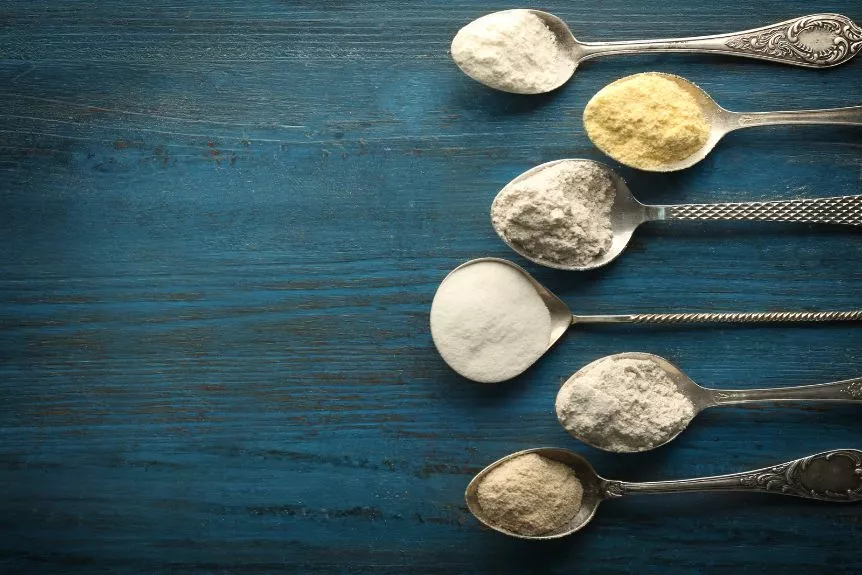
If you're looking to enhance your fitness routine with protein powder, understanding the various types available is crucial. Each type offers unique benefits and is tailored to different needs. From whey protein to soy and pea protein, each has its advantages depending on your goals and dietary considerations. So, before you make a choice, think about what you hope to achieve and what your body requires. The right protein powder can make a significant difference in reaching your fitness objectives.
Whey Protein
Have you ever wondered why whey protein is so popular among fitness enthusiasts? Well, let's break it down for you. Whey protein is a complete protein source derived from milk during the cheese-making process. One of the main reasons for its popularity is its fast absorption rate, making it an ideal choice for post-workout recovery. When you hit the gym hard, your muscles need protein to repair and grow, and whey protein delivers that protein quickly.
Not only is whey protein fast-acting, but it also contains high levels of essential amino acids, particularly leucine, which plays a crucial role in muscle protein synthesis. This means that whey protein can help you build and maintain muscle mass effectively. Additionally, whey protein is convenient and versatile. You can mix it with water or milk for a quick shake, incorporate it into recipes, or even use it to boost the protein content of your favorite smoothie.
Casein Protein
Whey protein is a popular choice for its fast absorption rate; however, let's explore the benefits of casein protein, another milk-derived protein powder known for its slower digestion rate and sustained release of amino acids.
Casein protein is digested more slowly than whey, making it ideal for situations where you want a gradual release of amino acids into your system. This slow digestion rate helps keep you feeling full for longer periods, making it a great option for those looking to control their hunger or for a nighttime protein source to support muscle recovery during sleep.
Additionally, casein protein is rich in glutamine, an amino acid important for muscle recovery and immune function. Its sustained release of amino acids over several hours can be beneficial for preventing muscle breakdown during periods of fasting, such as overnight.
If you're looking for a protein powder that provides a steady supply of amino acids and supports muscle recovery over an extended period, casein protein may be the right choice for you.
Soy Protein
Rich in essential amino acids and suitable for those with dairy allergies, soy protein is a plant-based protein powder that offers various benefits for muscle recovery and overall health. Soy protein is derived from soybeans and is a complete protein source, containing all nine essential amino acids that the body can't produce on its own. This makes it an excellent choice for vegetarians, vegans, or anyone looking to increase their protein intake.
One of the key benefits of soy protein is its ability to support muscle growth and repair. It's easily digestible, making it ideal for post-workout recovery shakes. Additionally, soy protein has been shown to help lower cholesterol levels and reduce the risk of heart disease.
Soy protein is also rich in antioxidants and phytonutrients, which can help reduce inflammation and support overall immune function. When choosing a soy protein powder, opt for products that are minimally processed and free from additives or artificial ingredients for the best results.
Pea Protein
Derived from yellow peas, pea protein offers a plant-based protein alternative with notable benefits for muscle recovery and overall health. If you have dietary restrictions or follow a vegan lifestyle, pea protein can be an excellent choice to meet your protein needs. Pea protein is a rich source of essential amino acids, particularly branched-chain amino acids like leucine, isoleucine, and valine, which are crucial for muscle growth and repair. This makes pea protein a valuable supplement for athletes or individuals looking to support their fitness goals.
Pea protein is also easily digestible, making it gentle on the stomach compared to other types of protein powders. It's naturally free of common allergens like dairy, soy, and gluten, making it suitable for individuals with food sensitivities. Additionally, pea protein contains no cholesterol and is low in saturated fat, making it a heart-healthy choice.
Incorporating pea protein into your diet can help you optimize your protein intake, support muscle recovery, and promote overall well-being. Whether you blend it into smoothies, bake it into treats, or mix it into oatmeal, pea protein offers a versatile and nutritious way to boost your protein consumption.




